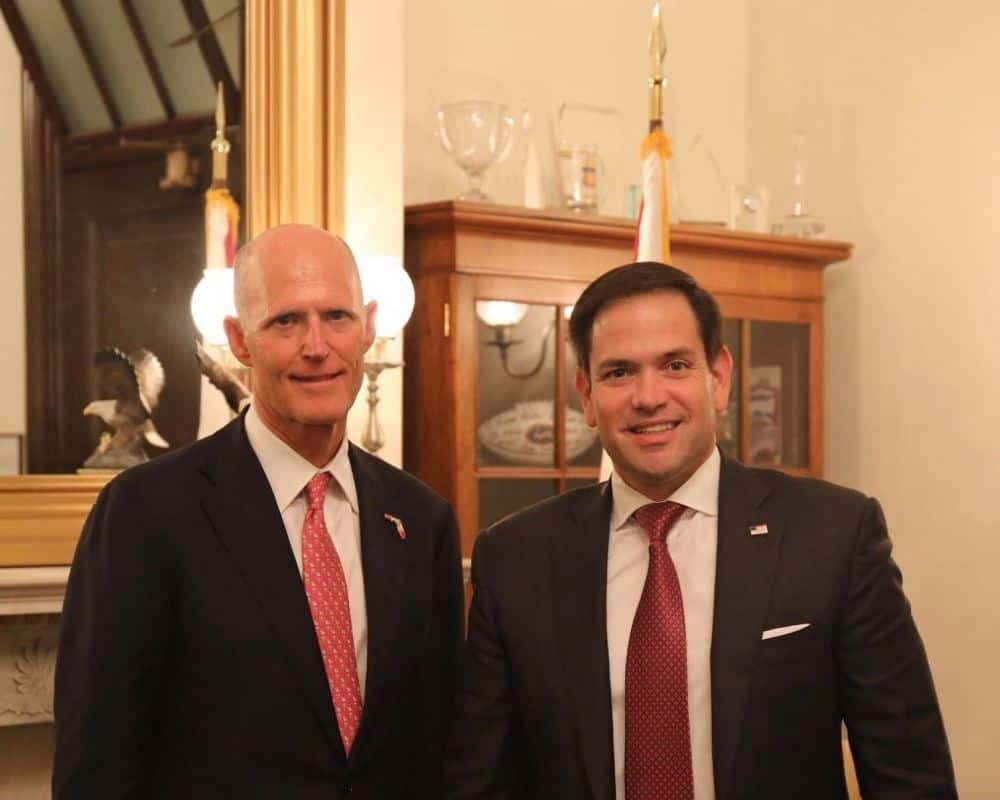This week, the U.S. Senate passed without opposition a proposal from U.S. Sen. Marco Rubio, R-Fla., to have states make Daylight Saving Time (DST) permanent.
Early in 2018, Rubio introduced the “Sunshine Protection Act” after the Florida Legislature passed a bill calling on Congress to make DST permanent across the state. More than a dozen other states–Arkansas, Alabama, California, Delaware, Georgia, Idaho, Louisiana, Maine, Ohio, Oregon, South Carolina, Tennessee, Utah, Washington and Wyoming — have passed similar proposals. Back in March 2019, Rubio, U.S. Rep. Vern Buchanan, R-Fla., and other Florida Republicans, brought back a proposal making DST permanent across the country.
Rubio introduced the bill again back in March 2021 with the support of U.S. Sen. Rick Scott, R-Fla., and other senators including U.S. Sens. Roy Blunt, R-Mo., Cindy Hyde-Smith, R-Miss., James Lankford, R-Okla., Ed Markey, D-Mass., Sheldon Whitehouse, D-RI, and Ron Wyden, D-Oreg.
The Senate passed Rubio’s proposal this week and he took to the Senate floor to make the case for his proposal.
“Others will be coming to the floor here, in a moment, and you’ll see it’s an eclectic collection of members of the United States Senate in favor of what we’ve just done here in the Senate. And that’s to pass a bill to make Daylight Saving Time permanent,” Rubio said. “Just this past weekend, we all went through that biannual ritual of changing the clock back and forth, and the disruption that comes with it. And one has to ask themselves after a while, ‘Why do we keep doing it? Why are we doing this?’
“This really began back in 1918 as a practice that was supposed to save energy, and since then we’ve adjusted it. Today, Daylight Saving Time, which started out as six months, was extended to eight months in 2005, clearly showing you where people’s preference [is],” Rubio continued.
“So we’re doing this back-and-forth clock changing for about 16 weeks of Standard Time a year. I think the majority of the American people’s preference is just to stop the back and forth changing. But beyond that, I think their preference is — certainly at least based on today’s vote, and what we’ve heard — is to make Daylight Saving Time permanent. I’ll just tell you a couple of the reasons why I think that’s important.
“There’s some strong science behind it that is now showing and making people aware of the harm that clock switching has. We see an increase in heart attacks and car accidents and pedestrian accidents in the week[s] that follow the changes,” Rubio added. :The benefits of Daylight Saving Time have also been accounted for in the research. For example, reduced crime as there’s light later in the day. We’ve seen decreases in child obesity. A decrease in seasonal depression that many feel during Standard Time.
“And then the practical one, one that I’ve witnessed with my own eyes…. We’re a country [in which] we desperately want our kids to be outside, to be playing, to be doing sports, not just to be sitting in front of a TV or a computer terminal or playing video games all day. And it gets really tough, in many parts of the country, to be able to do that. Because what ends up happening is, especially for these 16 weeks a year, if you don’t have a park or an outdoor facility with lights, you’re basically shut down around five p.m. — in some cases as early as four or 4:30 p.m. And these lights in parks and things like that are expensive, and then a lot of communities are resistant to them. It makes it tough to do [activities],” Rubio continued. “I’ve seen it with my own eyes. I’ve watched youth sporting events be called in the middle or near the end of the game, before it’s actually concluded, because there’s not enough lights.
“That’s one of the practical reasons why, if you look at the way we live in this country, you want to have the ability to spend more time in the evenings outdoors. Not just to enjoy the outdoors, but to make sporting and outdoor activities available for people at a time when, frankly, we’re losing an hour, an hour-and-a-half in some parts of the country, because of [the time change],” Rubio added. “I’m hoping that after today, this will go over to the House of Representatives, and they’ll act quickly on it. I know this is not the most important issue confronting America, but it’s one of those issues where there’s a lot of agreement. I think a lot of people wonder why it took so long to get here.
“My hope is that after we’re done here today, that the House will take it up, that the House will pass it, and the president will sign it..I think it’s important we’re delaying it until November of 2023 because of airlines, the rails, and transportation methods. Others have already built out schedules based on the existing schedule on the existing timeline of this. They’ve asked for a few months here … to make that adjustment,” Rubio said.
“The good news is that we can get this passed. We don’t have to keep doing this stupidity anymore. Why we would enshrine this in our laws and keep it for so long is beyond me,” he concluded. “Hopefully, this is the year that this gets done. And pardon the pun, but this is an idea whose time has come.”
Scott also weighed in this week on the proposal.
“Today is a great day for sunshine and for the Sunshine State! Changing the clock twice a year is outdated and unnecessary. We need to give families in Florida more sunshine, not less. Since I was Governor, I have been leading the charge to make Daylight Saving Time permanent. I want to thank Senator Rubio and all our colleagues for their unanimous passage of this commonsense legislation. The House should immediately vote on this good bill and send it to the president’s desk,” Scott said.
Over in the U.S. House, Buchanan continues to champion the proposal which has been before the U.S. House Consumer Protection and Commerce Committee for more than a year. Buchanan has nailed down more than 30 co-sponsors including U.S. Reps. Charlie Crist, D-Fla., Carlos Gimenez, R-Fla., Brian Mast, R-Fla., Bill Posey, R-Fla., John Rutherford, R-Fla., Maria Elvira Salazar, R-Fla., Darren Soto, D-Fla., Greg Steube, R-Fla., and Michael Waltz, R-Fla.




















